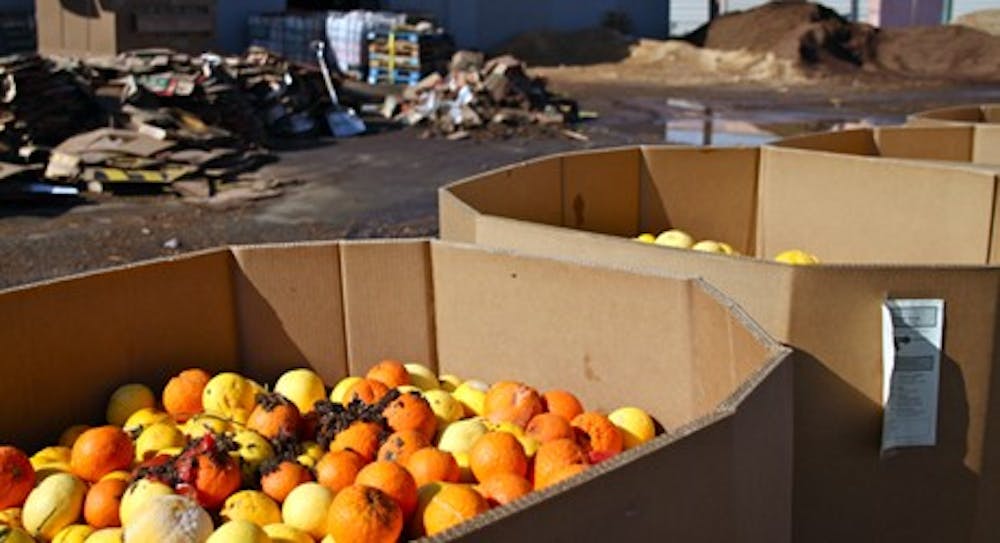Massive, steaming piles of compost line the walls of a small warehouse in Tempe, waiting to be bagged and sent to local plant nurseries.
EcoScraps, a Utah-based company that opened a new facility in Tempe last month, collects old produce from grocery stores, turns it into compost and then sells it in nurseries.
The company’s goal parallels ASU’s mission to create a greener planet. By turning waste into compost, EcoScraps reduces landfill buildup and methane emissions.
The company began selling compost in Arizona last fall, but a high demand for the product led to its newest compost facility in Tempe.
“We chose Arizona because of the two growing seasons,” EcoScraps co-founder Brandon Sargent said. “You can grow a lot more during the year.”
Sargent and a few of his friends developed the idea for the company after going to an all-you-can-eat buffet where they noticed people throwing out leftover food.
He said they realized these leftovers created waste and added to landfills, which inspired them to learn how to better the environment by composting, eventually leading to the launch of the company in March 2010.
“Bacteria in rotting food is different than compost; it releases methane into the air,” Sargent said.
Aaron Redman, a lecturer with the Global Institute of Sustainability at ASU, explained that organic waste in landfills emits methane gas because there is no contact with oxygen.
Compost piles are mixed, which exposes the entire pile to oxygen. This reduces methane output and also helps to reduce landfill waste, Redman said.
He said when people throw out organic material, they’re throwing away a resource.
“By composting, we’re restoring a resource,” Redman said.
Communication senior Andy Straight, EcoScraps’ sales and marketing manager for Arizona, said the company is encouraging sustainability.
“We’re pushing for full circle sustainability in Arizona,” he said.
By collecting old fruits and vegetables from grocery stores and produce distribution companies, then selling that compost product in local nurseries, EcoScraps is maximizing sustainability, Straight said.
Although the University is not involved with EcoScraps, ASU also hopes to maintain a sustainable campus through composting.
Deborah Thirkhill, the program coordinator for ASU grounds services, said every plant on campus receives compost from the landscaping scraps collected on campus.
The scraps, like tree branches, grass clippings and leaves, are chipped up and sent to Singh Farms where they are turned into compost, Thirkhill said.
That compost is collected by the University and used on lawns, planters and gardens to reduce the amount of waste the school sends to landfills, she said.
“We have a full cycle,” Thirkhill said. “We’re proud of it.”
Redman said through the Global Institute of Sustainability, ASU is running a workshop that’s looking into what the school can do about its food waste.
“We want to achieve zero-waste goals,” Redman said.
Redman said companies like EcoScraps help bring attention to landfill waste that can be composted and the dangers of not understanding the problems that landfills create.
“There are real consequences,” he said. “We should feel a sense of urgency.”
Reach the reporter at sophia.charchuk@asu.edu





